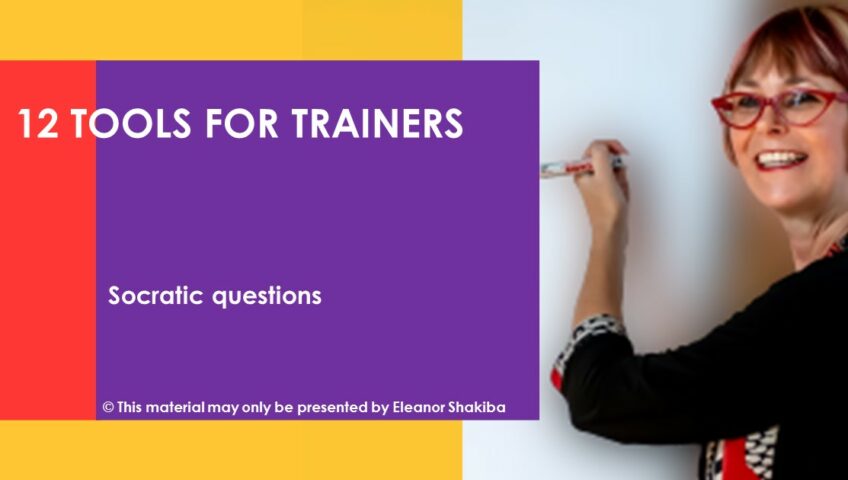Socrates was an ancient Greek philosopher. His believed that shared dialogue between a philosopher and a learner prompted critical thinking and fostered the development of wisdom. Trainers and trainers who use Socratic techniques ask probing questions. Why? To uncover the assumptions and beliefs which create mental models. In effective Socratic learning scenarios, learners ask questions as well – both of the facilitator and each other.
You can’t create a Socratic dialogue without knowing how to use Socratic questioning techniques. Here’s a quick look at how they work and how to apply them in training and facilitation contexts. Remember they are a great tool for positive psychology trainers, as well as organisational development consultants and coaches.
The aim of using Socratic questions is to promote open dialogue and prompt learning. As a trainer, your questions should prompt learners to think deeply and question their assumptions. By asking Socratic questions, you can lead course participants to the answer instead of giving it to them. However, you need to do this artfully. Always aim to create ‘productive discomfort’ and avoid triggering shame or fear reactions. This, of course, is a key principle that any positive psychology trainer keeps in mind at all times!
Indeed, many positive psychology practitioners consider the Socratic method the cornerstone of cognitive behavioural therapy (CBT). According to Clark and Egan, both practices involve asking open-ended questions that promote reflection. Michael Neenan has also explored the connection between Socratic questions and CBT. He believes that these methods work best when there isn’t a predetermined goal. In corporate training contexts, the facilitator continues to ask probing questions to help learners unlock the answers.
Of course, to help people unlock answers, you need to know what questions to ask. Socratic questions are typically open-ended and (as much as possible) devoid of assumptions. The learner needs to actively participate in the discussion. The facilitator needs to respond to what is happening in-the-moment. So don’t try scripting your Socratic sessions! You need to be flexible to promote self-discovery. When asking Socratic questions, remember that silence is a positive sign. Learners need to process and think before responding – the consequence of a great question is silence.
As your group interacts with you, continue to come up with new questions. Resist the temptation to tell, give advice or issue instructions. Be ready to rephrase questions that receive a vague or ambiguous response. This encourages group participants to elaborate. When asking for clarification, you may ask, “What do you mean when you say ‘X’?” Your questions should also challenge assumptions. This helps learners to consider other points of view and encourages them to step into growth mindset mode.
When necessary, ask for the evidence or the reasoning behind a point-of-view. Do this gently, so that learners know you are helping them and not challenging aggressively. Throughout the Socratic dialogue, summarise the key points that emerge. Reinforce insights and encourage shifts in perspective. After all, that’s the point of using dialogue in learning and organisational development contexts.
If you want pointers on how to start using Socratic questions enrol in a trainers’ master class with Eleanor Shakiba today.
About the author: Eleanor Shakiba
Eleanor is a specialist in positive psychology training. Her core strength is creativity, which she expresses in the training room through storytelling and visual design. She has dedicated her career to helping experienced professionals break through glass ceilings by developing their confidence, communication skills and leadership mastery. Eleanor is qualified in a range of fields including Social Anthropology, Positive Psychology, Counselling, Coaching, Adult Education and Neuro Linguistic Programming. She is also the author of the Positive Psychology Toolkit for HR and L&D Practitioners. This is a free resource for trainers and facilitators.
